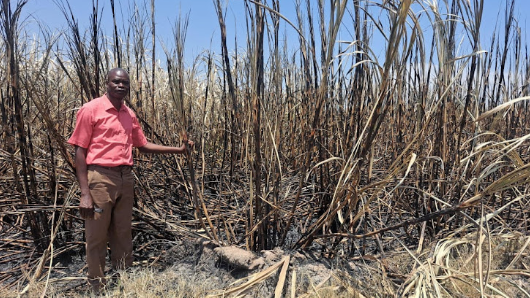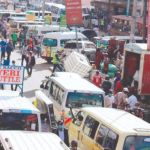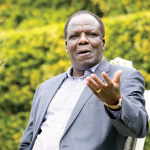Cane farmers are urging the government to invest in new, high-yielding, and fast-maturing cane varieties that are rich in sucrose content to revitalize the sugar sector. They believe that adopting these advanced cane varieties could significantly boost overall productivity and profitability, enabling them to better meet market demands.
Ezra Okoth, the chairman of the Kenya National Sugarcane Federation, stated, “We support a sugarcane payment system that rewards them based on sucrose content, as it promises to incentivize higher-quality production. But we want new cane varieties.” He emphasized that reforms in the industry are essential for ensuring sustainability and improving overall cane production output.
The Federation officials advocated for these reforms, asserting that investing in the research and development of new cane varieties would not only benefit individual farmers but also enhance the sustainability and competitiveness of the sugar industry as a whole. Their call for innovation reflects a desire to improve agricultural practices and help farmers thrive in a changing economic landscape.
The Agriculture and Food Authority (AFA) revealed that approximately Sh600 million is needed to multiply these improved cane varieties, which will also incentivize farmers to produce higher quality cane. In response to the farmers’ concerns, the authority has initiated public consultative meetings with cane farmers across the country to discuss and evaluate the proposed payment system based on sucrose content.
These ongoing meetings in the sugar belt aim to gather feedback and reach a consensus on whether to adopt or reject the new payment model for sugarcane delivered to sugar factories. Jude Chesire, the Sugar Directorate boss, remarked, “AFA has embarked on public consultation meetings on the draft crops (sugar), quality-based sugarcane payments system on sucrose content, Regulations Bill, 2023.” He emphasized that the input from cane farmers is crucial in shaping a system that seeks to benefit the agricultural community and enhance the sustainability of the sugar industry.
The meetings commenced in the South Nyanza sugar belt, covering regions such as Migori, Trans Mara, Sony Sugar, and Sukari Industries on Monday. Ezra Okoth stated that they engaged in candid discussions to dissect the industry and share their perspectives on the proposed payment system based on sucrose content.
“This collaborative approach aims to ensure that the voices of farmers are heard as they consider the implications of the new payment model riding on the farmers’ consent,” explained Jude Chesire.
However, the recent withdrawal of the Finance Bill, which had budgeted Sh600 million for the multiplication of fast-maturing, high-sucrose cane varieties, raises concerns about the timely implementation of these essential reforms in the sugar industry. With no immediate access to these funds, this delay could impact plans to introduce and multiply the new cane varieties, possibly stalling efforts to revitalize the sector, Chesire noted.
This situation means that cane farmers and stakeholders may have to wait longer for the improvements promised by the Agriculture and Food Authority (AFA), as the reforms are now contingent on the future passage of a revised Finance Bill. Consequently, this could slow down the anticipated gains in sugar production, affecting both local farmers and the national economy. These issues were highlighted during the ongoing farmers’ public participation forum.
The forum is currently being held in West Kenya—Naitiri, with discussions planned for Nzoia, West Kenya-Olepito, and Busia tomorrow in Bungoma. The AFA will continue the public consultation meetings on the draft regulations for a quality-based sugarcane payment system. On September 25, they will proceed to Butali, West Kenya, and Mumias in Kakamega, before concluding on Thursday, September 26, with sessions in Kisumu-Kibos, West Valley, Muhoroni, Chemelil, and Soin in Kisumu.
During his recent visit to Nyanza, President William Ruto urged the AFA to expedite the implementation of a new payment system aimed at enhancing the sugarcane payment structure and improving farmers’ earnings. The proposed quality-based payment system is part of ongoing efforts to support the agricultural sector and could play a crucial role in improving payment efficiency for farmers, ensuring they receive timely compensation for their produce.



